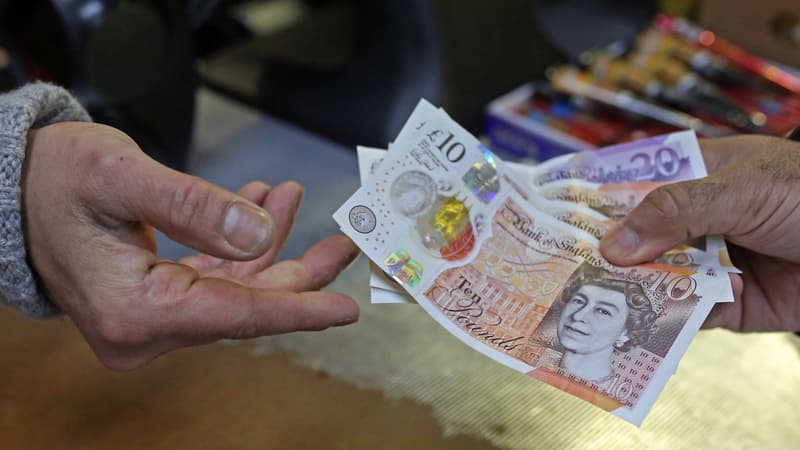The Bank of England (BoE) announced a larger-than-expected hike in its benchmark rate on Thursday, after seeing data suggesting a slower-than-expected slowdown in UK inflation.
“Recent data shows that inflation is more persistent than expected, with a tight labor market and resilient demand,” the Monetary Policy Committee (MPC) said in its statement.
Inflation without energy and food at 7.1%
The base rate thus rises from 4.5% to 5%, the highest since 2008. Economists polled by Reuters last week had expected a quarter-point rise to 4.75%, although financial markets Hours before, they had estimated the probability that the rate would be set at 5% at almost 50%.
Data released on Wednesday showed an acceleration in price increases, excluding energy and food, from 6.8% to 7.1% in May (and 8.7% overall). A peak since March 1992.
However, it is this indicator that central banks are trying to rein in, in order to avoid a vicious circle of rising prices and wages. And investors believe that the BoE will not be able to afford to stop there and should raise its benchmark rate to 6% by the end of the year.
“The local price and income consequences of external shocks”, such as the Covid-19 pandemic and the war in Ukraine, “are likely to take longer to disappear than to appear,” warns the Monetary Policy Committee (MPC) in the minutes of your meeting.
The BoE was content, as in its last meetings, with warning that “if there were more evidence of persistent (inflationary, editor’s note) pressures, further tightening of monetary policy would be necessary.”
very high credits
But this tightening is beginning to have an adverse effect on the British economy, with the cost of government borrowing skyrocketing and mortgages costing more.
In a UK market dominated by retail loans at rates that are renegotiated every two to five years, many homeowners will see their monthly payments skyrocket this year.
The UK economy could have a hard time absorbing the fallout from rate hikes: if it’s doing a little better than expected, it’s struggling to get back to the level it was before the Covid-19 pandemic.
Two of the nine members of the MPC have also voted against raising rates, considering it more appropriate to leave them unchanged.
“The delay in the entry into force of the monetary policy means that the most important effects of the past increases have not yet been registered,” these two deputies worry in the minutes.
An opinion that the British government does not seem to share: “Our determination to (lower inflation) is unwavering because it is the only long-term way to relieve the pressure” that weighs on the British, the Finance Minister, Jeremy Hunt, reacted on Thursday . . “If we don’t act now, it will be worse later.”
Source: BFM TV


